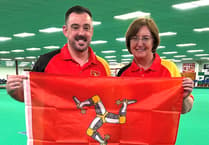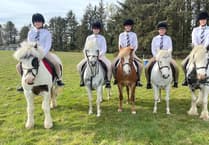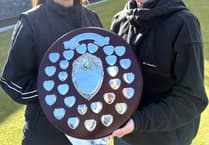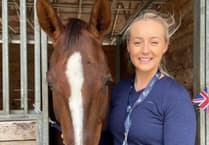Will Draper competed in his first professional triathlon last weekend at the PTO (Professional Triathlete Organisation) Dorney event.
It was held at the stunning, purpose-built, 2.2-kilometre Dorney Rowing Lake in Buckinghamshire, the Eton Dorney venue for the London 2012 Olympics.
The race was staged over a unique distance of an 1800m swim, 60km bike and 15km run with a small but super strong field of professionals battling it out.
Speaking on social media after the event, Will explained: ’I’ve been working hard with my swimming lately but unfortunately Rome wasn’t built in a day so I still came out the water on the feet of the last few pros.
’The race, as always, started for me on the bike and I rode pretty controlled as we were racing in peak heat of the day with a 1pm start.
’I posted the third fastest bike split averaging just under 28mph and over 300 watts which I was happy with. As data from other races has shown, I make up most of my time in the second half of a 70.3 ride - which there wasn’t on this occasion as the bike was about one hour shorter than a middle-distance triathlon.
’I felt good going into the run and the first two miles were fast and physically comfortable. Unfortunately, the temperatures approached 28C, with zero shade and only an aid station every 2.5km serving warm bottled water.
’Once my core temperature went up, I was just putting one foot in front of the other - surprisingly ending up with the 10th fastest run resulting in 12th across the finish line out of 18 finishers.
’For me this race felt like a test of my ability to race in the heat and not a test of my ability to swim/bike/run.
’It doesn’t help that the Isle of Man has hardly hit 15C of late - if I went back in time four weeks, all my intervals would go out the window and I’d just focus on getting better at performing in the heat.
’Fair play to those guys out ahead that still held their paces in the blistering sun.
’The Outlaw Triathlon 70.3 Nottingham is this weekend and I’m looking forward to seeing if my performance changes in cooler conditions.’





Comments
This article has no comments yet. Be the first to leave a comment.